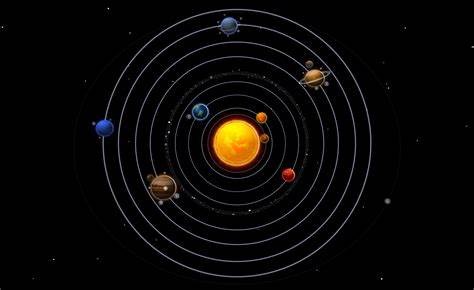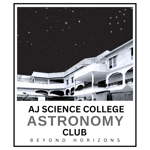Astronomy Hackathon Challenges 🚀
Welcome to the Astronomy Hackathon! Each challenge is designed to solve real problems for the Astronomy Club, making space science more accessible, engaging, and educational.
🔴Rules for All Challenges
Use Only Approved Sources: Participants must use information from the following trusted sources:
Understandable English: Grammar is not judged, but content must be clear and easy to read.
Interactive and Engaging: Your project should be visually appealing and user-friendly.
Complete Within Time Limit: You must submit your challenge within the given deadline.
Be Creative: Innovation and originality are highly encouraged!
You must provide a link to the source you used.


1. Space News Website
🏛 Club: Current Affairs
Objective: Build a website that shares the latest space news and discoveries.
What You Need to Do:
Research recent space events using NASA, ESA, and Wikipedia.
Create short, engaging news articles about space missions and discoveries.
Organize the website into categories (e.g., Planetary Science, Space Missions, Astronomy Facts).
How This Helps in Making Space Awareness?
✅ Provides a reliable space news hub for students.
✅ Keeps the club updated on space research.


2. Space Data Visualization
📊 Club: Intelligence
Objective: Use Excel or Google Sheets to create graphs and charts explaining space-related data.
What You Need to Do:
Choose a dataset (e.g., planet distances, meteor showers, space launches).
Convert numbers into graphs, pie charts, or interactive visualizations.
Explain what the data means in simple language.
How This Helps in Making Space Awareness?
✅ Makes complex space data easy to understand.
✅ Creates educational materials for club presentations.


3. Astronomy Club Website
🌐 Club: Web Development
Objective: Design a simple, professional website for the Astronomy Club.
What You Need to Do:
Add sections for events, projects, stargazing schedules, and learning resources.
Make the website easy to navigate with a clean layout.
Include images, space facts, and club contact details.
How This Helps in Making Space Awareness?
✅ Increases visibility and attracts new members.
✅ Provides a central hub for club activities and updates.


4. Interactive Space Quiz Website
🧠 Club: Web Development
Objective: Create an interactive quiz with space-related questions.
What You Need to Do:
Develop multiple-choice questions using NASA, ESA, or Wikipedia.
Make different difficulty levels (Beginner, Intermediate, Advanced).
Provide instant feedback with correct answers and explanations.
How This Helps in Making Space Awareness?
✅ Engages students with fun learning experiences.
✅ Can be used for Astronomy Club events and competitions.


5. Space Translation Project
🌎 Club: Language Clubs (English, Japanese, Spanish, German)
Objective: Translate space-related facts and content into different languages.
What You Need to Do:
Translate space articles, posters, or short descriptions into Japanese, Spanish, German, etc.
Optional: Create a website in the selected language about basic space topics.
How This Helps in Making Space Awareness?
✅ Makes astronomy accessible to non-English speakers.
✅ Promotes multilingual engagement in space education.


6. Star Observation Guide
🔭 Club: Intelligence
Objective: Create an easy-to-read presentation on visible constellations and stargazing tips.
What You Need to Do:
Research visible constellations and how to locate them.
Include high-quality images and simple descriptions.
Explain the best times for stargazing.
How This Helps in Making Space Awareness?
✅ Provides an easy reference guide for club events.
✅ Encourages more students to join stargazing activities.


7. Timeline of Space Missions (Website or Presentation)
🚀 Club: Current Affairs
Objective: Create a digital timeline of key space missions.
What You Need to Do:
Choose important space missions (Apollo 11, Mars Rovers, James Webb, etc.).
Use a timeline format with images, dates, and key facts.
Provide fun facts and why these missions matter.
How This Helps in Making Space Awareness?
✅ Makes space history easy to learn.
✅ Can be used for school presentations or club events.


8. Solar System Exploration Website
Club: Web Development
Objective: Build a website that teaches about planets, moons, and space exploration.
What You Need to Do:
Add detailed information about planets, exoplanets, and space probes.
Use images and fun facts to keep it engaging.
Include interactive elements like hover effects or quizzes.
How This Helps in Making Space Awareness?
✅ Creates a permanent learning resource.
✅ Encourages self-learning and exploration.


9. Online Space Learning Portal
📚 Club: Web Development
Objective: Create a one-stop website for learning about space, including videos, articles, and resources.
What You Need to Do:
Collect videos, animations, and interactive resources from NASA, ESA, and Wikipedia.
Organize them into easy-to-navigate sections.
Provide brief descriptions of each resource.
How This Helps in Making Space Awareness?
✅ Makes astronomy education more accessible.
✅ Helps students find quality learning materials quickly.


10. Space Awareness Videos & Digital Posters
🎥 Club: Language Clubs (English, Japanese, Spanish, German)
Objective: Create short, engaging videos or posters to promote space education.
What You Need to Do:
Videos: Use CapCut or any editing tool to make short, fun space explainers.
Posters: Use Canva to design attractive space infographics.
Include clear facts and high-quality images.
How This Helps in Making Space Awareness?
✅ Attracts attention to space science.
✅ Can be used for social media, school events, or displays.
Choose any one of the challenges, start working on your project, and showcase your creativity. Each project will be evaluated based on its challenge criteria, and the best-performing team for each challenge will be declared the winner of that challenge! 🚀
🚀 Astronomy Hackathon Challenge Registration Form
Welcome to the Astronomy Hackathon! 🎉 Choose your challenge, form your team, and get ready to make an impact.
📌 Instructions:
Each participant or team must fill out this form to officially register for a challenge.
Choose only one challenge per submission.
Teams can have 4 members.
Once registered, you will receive further instructions from the organizing team.
🔔 Submission & Next Steps:
✅ After submitting, you will receive messages with further details on astrofest 2.0 community.
✅ Make sure to follow the challenge guidelines and complete your project within the deadline.
✅ Projects will be evaluated, and the best-performing team for each challenge will be the winner! 🏆
🚀 Let’s make this hackathon a success! Good luck! 🌟


